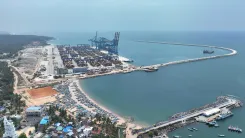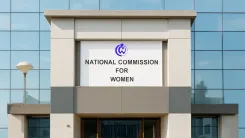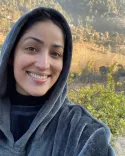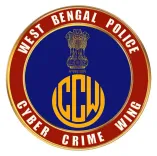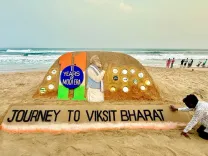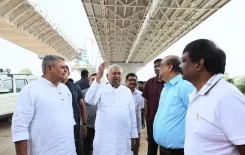Durga Prasai, Pro-Monarchy Protest Leader, Arrested by Nepal Police
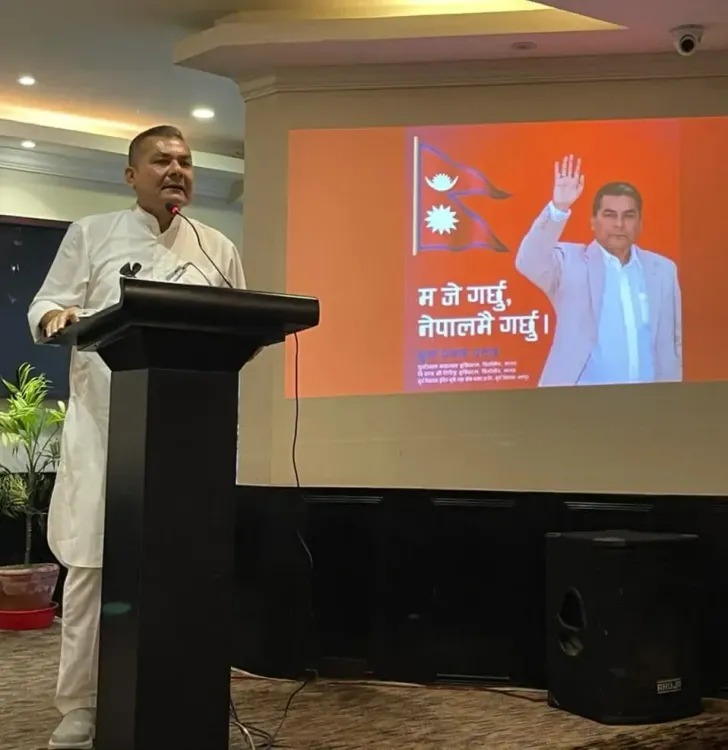
Synopsis
Nepal Police apprehended businessman Durga Prasai, accused of leading a violent pro-monarchy protest on March 28. He was arrested in India and extradited to Kathmandu. Alongside his bodyguard, both face serious charges related to organized crime and protests, which resulted in deaths and injuries.
Key Takeaways
- Durga Prasai was arrested for leading a violent pro-monarchy protest.
- Prasai was captured in India and brought back to Kathmandu.
- Charges include organized crime against the State.
- The protests resulted in significant casualties and damages.
- Nepal Police continue to investigate and arrest related individuals.
Kathmandu, April 11 (NationPress) - On Friday, Nepal Police announced the arrest of Durga Prasai, an absconding businessman accused of leading the violent pro-monarchy protest that erupted on March 28. Reports indicated that Prasai was captured in India before being transported back to Kathmandu via the Kakarbhitta border.
Prasai was apprehended by the Special Bureau of Nepal near the eastern border, following the deployment of three police teams to locate him in India. Deepak Khadka, his bodyguard, was also arrested, as reported by local media.
Deputy Inspector General Dinesh Kumar Acharya, the central spokesperson for Nepal Police, verified the arrests, stating that both Prasai and Khadka were brought to Kathmandu for further inquiries.
Authorities indicated that Prasai and Khadka face charges of crimes against the State and organized crime due to their involvement in the violent demonstrations by pro-monarchists at Tinkune on March 28.
Supporters of Prasai claimed he voluntarily surrendered to the Indian Police after assurances of safety. Reports suggest that Assam Police facilitated his return to the border, where he was handed over to Nepali authorities.
On March 28, the pro-monarchy protests in the Tinkune area of Kathmandu escalated, led by the joint movement committee under Nawaraj Subedi. Businessman Durga Prasai was accused of rallying supporters, with backing from the Rajendra Lingden-led Rastriya Prajatantra Party (RPP).
The violent clashes between security forces and pro-monarchy demonstrators resulted in the deaths of two individuals and injuries to hundreds. The unrest caused an estimated damage of Nepalese Rs 460 million.
On Tuesday, the pro-monarchist RPP held a protest at Balkhu in Kathmandu, advocating for the reinstatement of the monarchy and the release of detained party leaders and supporters.
The demonstration, led by RPP chair Lingden, carried the slogan 'Let's change the system to change the situation'. Police maintained heightened alertness during the event following the violence in Tinkune.
Nepal Police have conducted multiple arrests related to the violent pro-monarchy protests, including the apprehension of Rastriya Prajatantra Party Vice Chairman Rabindra Mishra and General Secretary Dhawal Shamsher Rana.
The Kathmandu District Court recently extended the remand of RPP leaders Rabindra Mishra and Dhawal Shamsher Rana, along with 18 others, for an additional 15 days as part of an ongoing investigation into their alleged roles in the violent pro-monarchy protests.
On April 1, Nepal's Prime Minister KP Sharma Oli warned of potential legal repercussions for pro-monarchy proponents responsible for the unrest that swept through the South Asian nation.
Oli declared that even former king Gyanendra Shah would face consequences if found guilty in the violence of March 28, as reported by local media.
The leader's stern reaction arose amid escalating tensions in specific areas of Kathmandu following violent confrontations between security forces and pro-monarchy demonstrators advocating for the restoration of the abolished monarchy in Nepal.

